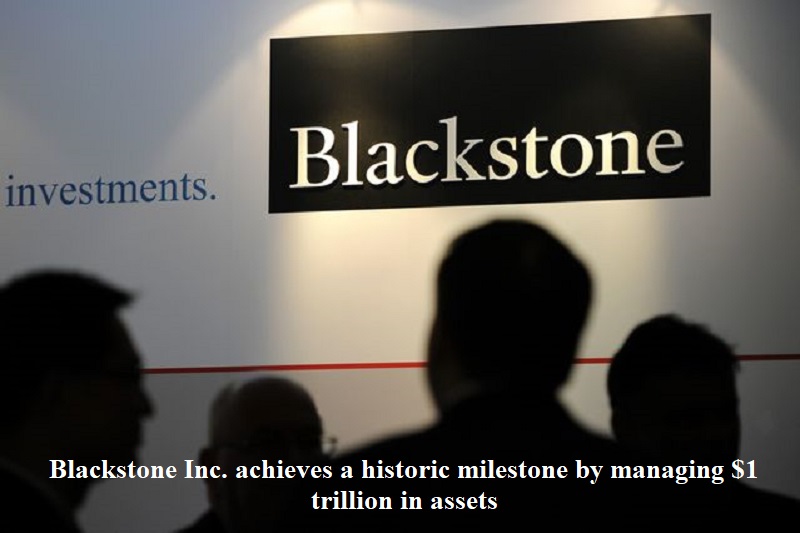
Blackstone Inc. has achieved a historic milestone, becoming the first private equity company to manage $1 trillion in assets. However, the second-quarter profits were impacted by a dealmaking downturn, which has tempered this achievement.
Blackstone proudly announced in its latest quarterly earnings report that it now controls just over $1 trillion in assets as of the end of June, making it the first private equity firm to reach this significant milestone. Despite this feat, the global slowdown in deal-making has affected the firm’s profit in the second quarter.
The profit available to shareholders, measured by distributable earnings, saw a 39 percent decline to $1.2 billion, the lowest level in two years, resulting in a profit of 93 cents per share. Nonetheless, the business currently manages $1.001 trillion, a growth from $940.8 billion the previous year.
As a result of these financials, the company’s stock experienced a two percent decline during morning trading in New York. However, it’s worth noting that despite this setback, Blackstone’s stock has performed impressively, boasting a 46 percent gain this year. This significant growth has outpaced the S&P 500’s 19 percent gain and surpassed its competitors, including KKR & Co., Carlyle Group Inc., and Apollo Global Management Inc.
Although distributable earnings declined in the second quarter, another crucial measure of profitability, fee-related earnings, and recurring revenues from asset management, surged by 12 percent year over year, as per the official announcement released on Thursday. This growth was primarily driven by fees generated from new funds and a rebound in equity markets that bolstered asset prices. However, even with these strengths, Blackstone was not immune to the broader industry trend of reduced dealmaking activity.
To navigate the challenges in private asset valuations between buyers and sellers, Blackstone has adopted a cautious approach, slowing down the pace of new agreements and prioritizing payouts for existing stakes. This strategic move comes as the latest quarterly results reveal that even the world’s largest alternative asset manager is not exempt from the industrywide slowdown in deal-making.
Gray, a representative of Blackstone, also provided insights into wage and cost statistics from the firm’s portfolio companies, suggesting that inflation may be receding more broadly than observed by others in the market.
Blackstone had previously outlined its ambitious plan to raise approximately $25 billion for its highly regarded flagship fund. So far, the firm has successfully accumulated $17 billion in funds toward this target.
Credit played a pivotal role in driving inflows for the company, highlighting Blackstone’s evolution into a prominent non-bank lender, moving away from its acquisition-focused origins. Credit products constituted nearly half of all inflows, underscoring the growing significance of this sector within Blackstone’s diverse portfolio.

Post Your Comments